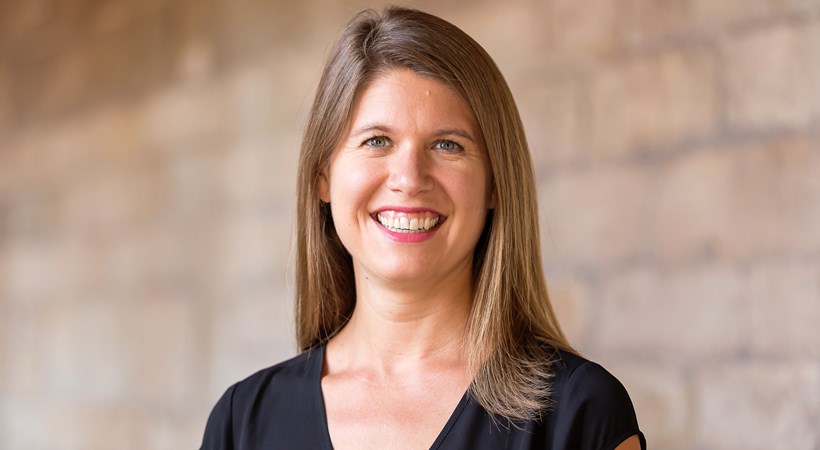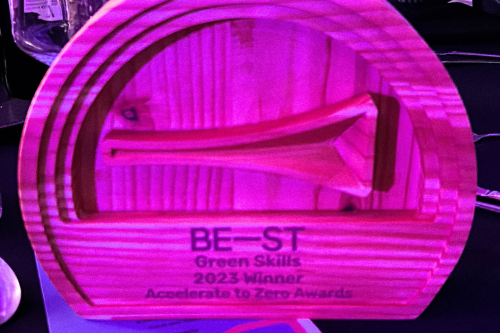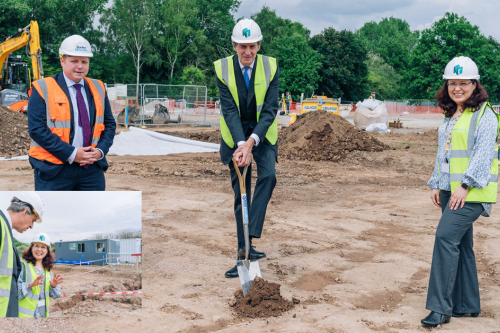The soft skills of engineering require collaboration
It’s not all about technical content. A collaborative environment is required to build up vital soft skills such as co-operation and leadership, writes Sarah Hitt, Full Professor in Engineering Education at NMITE which is aiming to revolutionise engineering education
It was at the start of week two of home schooling through the remote learning software Seesaw that my partner commented on his children’s adept navigation of the digital learning environment. They are aged 8 and 10. Based on their teacher’s feedback, which was often instantaneous, they were whizzing through times tables and deconstructing fronted adverbials seemingly as successfully online as they had been in their usual in-person classroom. But we still noticed a huge gap in their learning; learning that had little to do with the content of maths or English lessons and much more to do with the kind of humans they were becoming.
This gap has to do with the non-academic competencies that school teaches you: the skills you learn in the playground while negotiating with your peers about the rules of the tag game that has spontaneously been invented, or while overcoming your apprehension about standing in front of the school assembly to read out your poem.
Content alone
In other words, the children are still learning the content through remote learning software, and arguably, achieving the learning outcomes outlined by the Department for Education. However, they are not learning or practicing many of the personal and social skills that will enable them to turn that content knowledge into effective application in private, professional, and civic life when they are older.
While parents and teachers can do our best in the home school environment to provide opportunities to invent games and deliver impromptu speeches, the digital world has yet to fully replicate the learning that occurs on the boundaries of official classroom instruction, in and among their peer group.
Technical topics
In the same way, higher education engineering programmes both here and abroad generally do an excellent job of providing students with the opportunity to learn and demonstrate proficiency in content knowledge like Ohm’s law or the second law of Thermodynamics. Indeed, I’ve had dozens of practising/professional engineers tell me anecdotes along the lines of, “I’ve never used linear algebra on the job” or “The software I spent 6 months learning is now obsolete.”
Unfortunately, technical courses often prioritise these technical topics at the expense of what are sometimes termed “soft” skills like collaboration, adaptability, creativity, and communication. It’s strange that they are described as soft when learning them is quite hard, and they often take a lifetime to really develop.
Excellent primary and secondary school educators generally embed this kind of learning alongside the academic content they have to teach.
For instance, when you ask students to turn to their neighbours and share their differing answers to the algebra problem and require them to collectively determine who got it right, you’re teaching framing an argument, listening, negotiation, and leadership alongside algebra. Unfortunately, these kinds of learning activities usually evaporate by the time students reach higher education, with its emphasis on lectures, individual reading and problem-solving, and exams to prove mastery.
Engineering higher education
Fortunately, many innovative approaches to addressing this gap within engineering higher education have been developed and tested in recent years.
Active learning, problem-based learning, real-world design challenges, and teamwork are all educational practices that have started to become the norm in some technical courses. Some professors resist these innovations, thinking that by allocating significant time for a team of students to work out the electronics problems behind a real industry challenge, they are not being as efficient or as effective as they could be if they just lectured to the students about how to solve the problem.
But learning how to work as a team and being resilient in the face of challenges and setbacks is the kind of knowledge and experience that is just as valuable for students to learn. When solutions to many technical problems can now be found through savvy Googling it is the other skills that set people apart.
Soft skills
Indeed, soft skills are sometimes described as “future skills” because employers forecast that these are the attributes they will look for when hiring graduates, and the ones that people will need to remain employable as technology continues to evolve and the workplace rapidly changes. Yet these are the skills of the past as well as the future.
Without collaboration, ingenuity, communication, and resilience, homo sapiens could never have settled the entire globe, no matter how advanced their tools. Human communities survive in every possible climate and environment on earth, and thrive despite adversity. We can see this in our current global scenario where medical innovations keep us safe, and creative and imaginative solutions for exercising indoors or making music together apart keep us sane.
These are enduring human attributes that are cultivated, not simply instilled. You can’t learn how to communicate by simply listening to a lecture on public speaking. You have to actually get up and speak, over and over and over again, to different audiences, in different contexts, for different purposes. You have to make embarrassing mistakes and forget all your lines. And you have to be critical in evaluating your efforts, reflecting on how you did, and identifying what you want to do better next time. Then make yourself do it next time.
In giving engineering students real-world challenges to address, such as adapting an assembly line to make ventilators instead of automobiles, they will learn important technical content on manufacturing, control systems, and materials. But they will also learn the future skills that will make them even better at responding with solutions that improve our lives in both the good times and in the challenging ones.







